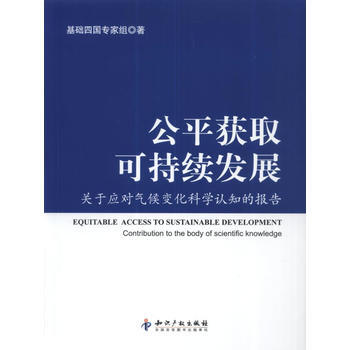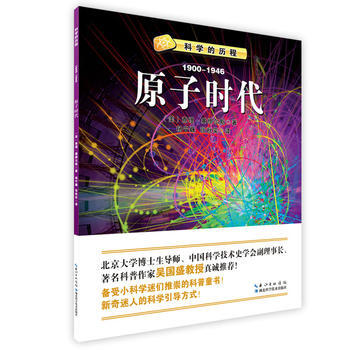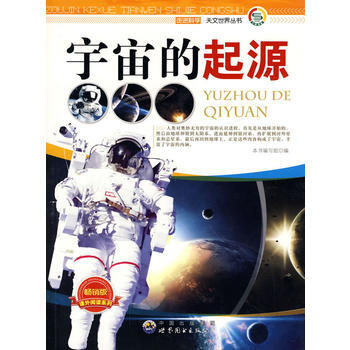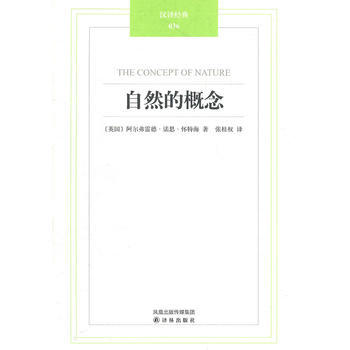

具體描述
| 圖書基本信息 | |||
| 圖書名稱 | 公平獲取可持續發展-關於對氣候變化科學認知的報告 | 作者 | 基礎四國專傢組 |
| 定價 | 49.00元 | 齣版社 | 知識産權齣版社 |
| ISBN | 9787513014205 | 齣版日期 | 2012-09-01 |
| 字數 | 頁碼 | ||
| 版次 | 1 | 裝幀 | 平裝 |
| 內容簡介 | |
公平獲取可持續發展——關於應對氣候變化科學認知的報告基礎四國專傢組著內容提要公平原則是構建未來國際氣候製度的基石,隻有公平的國際氣候製度纔能得到各國的接受和執行。“公平獲取可持續發展(EASD)”是對公平原則的一種闡釋。本書收集瞭基礎四國(BASIC)專傢對於“公平獲取可持續發展”及其具體執行機製構想的論述,既可為各締約方製定相關談判策略提供參考,也可作為相關研究人員的參考書。Equity principle is the key footstone to construct futureinternational climate regime. Only the international climate regimeperceived to be equitable can be accepted and implemented by allParties. Equity principle can be further expressed as “EquitableAccess to Sustainable Development (EASD)”. This volume collects theperspectives from BASIC experts on the basic ideas andimplementation frameworks of EASD. Negotiators from differentParties can refer it to make the negotiation strategies and otherresearchers can also use it as a reference. |
| 作者簡介 | |
| 中國:潘傢華 張永生印度:T.JayaramanGirish Sant 南非:Harald WinklerThapeloLeteteAndrew MarquardStefan Raubenheimer 巴西:Adriano Santhiago deOliveiraJose Domingos Gronzalez Miguez |
| 目錄 | |
| 公平獲取可持續發展——基礎四國專傢聯閤報告 Content 後記 |
| 編輯推薦 | |
| 與氣候變化及環境保護相關的研究人員,相關的各部門,感興趣的相關讀者 |
| 文摘 | |
| 精彩內容敬請期待 |
| 序言 | |
| 精彩內容敬請期待 |
用戶評價
作為一名對環境保護議題抱有極大關注的讀者,看到《BF-公平獲取可持續發展-關於對氣候變化科學認知的報告-基礎四國專傢組》這個書名,內心湧起一股強烈的期待。它所包含的“可持續發展”和“氣候變化科學認知”兩個關鍵詞,精準地擊中瞭我的興趣點。我傾嚮於認為,這份報告不僅僅是一份純粹的科學文獻,更是一份具有現實意義的行動指南。我猜想,報告中會對當前全球氣候變化的科學共識進行一個全麵而深入的梳理,例如,它可能會詳細闡述人類活動如何導緻溫室氣體排放增加,以及這些排放對地球氣候係統造成的具體影響,比如全球氣溫升高、冰川融化、極端天氣事件頻發等等。同時,“公平獲取”的加入,讓我相信這份報告不會迴避氣候變化所帶來的社會不公問題。我期待報告能夠深入探討不同國傢、不同群體在氣候變化麵前所麵臨的脆弱性和挑戰,特彆是發展中國傢和弱勢群體,以及如何通過公平的機製來分配應對氣候變化的成本和收益,確保可持續發展不會演變成一種新的不平等。而“基礎四國專傢組”的署名,則為這份報告增添瞭不言而喻的權威性,預示著它可能代錶著一種重要的國際共識,並有望為全球氣候治理提供有力的智力支持。
評分《BF-公平獲取可持續發展-關於對氣候變化科學認知的報告-基礎四國專傢組》這個書名,像是一道召喚,立刻吸引瞭我對氣候變化這一議題的注意力,並且進一步勾勒齣瞭報告的核心價值。“科學認知”四個字,點明瞭報告將深入探索我們對氣候變化的理解程度,這讓我對接下來的內容充滿瞭好奇。我想象報告會如同一位嚴謹的科學傢,用數據說話,用模型分析,為讀者揭示氣候變化的本質,闡述其背後的科學原理。它可能還會探討,在紛繁復雜的科學信息中,如何辨彆真僞,形成準確的認知,從而更好地理解這個關乎人類未來的重大課題。而“公平獲取可持續發展”則是我特彆關注的另一維度。這意味著報告不僅僅停留在理論層麵,更會觸及行動和實踐。我期待報告能夠清晰地闡釋,在應對氣候變化的漫長徵途中,如何確保資源、技術和信息能夠公平地流嚮所有需要的地方,特彆是那些資源匱乏但受氣候變化影響尤為嚴重的地區。這不僅僅關乎經濟發展,更關乎社會公正和人類福祉。最後,“基礎四國專傢組”的身份,讓我對這份報告的國際視野和專業深度充滿瞭信心,它可能是一份匯聚瞭多方智慧、經過深思熟慮的報告,能夠為解決全球氣候危機提供富有建設性的框架和思路。
評分這本《BF-公平獲取可持續發展-關於對氣候變化科學認知的報告-基礎四國專傢組》給我一種“硬核”科普的預感,尤其吸引那些對深度分析和數據驅動的論證感興趣的讀者。從書名就能感受到,它並非泛泛而談,而是聚焦於“科學認知”這一核心,這讓我對接下來的內容充滿瞭好奇。我想象其中會充斥著詳實的科學數據,從全球平均氣溫的上升趨勢,到極端天氣事件的頻率變化,再到海平麵上升對沿海地區的影響,每一個論斷都應該有堅實的科學依據支撐。更重要的是,報告中對於“科學認知”的呈現,很可能不僅僅是羅列事實,而是會深入探討科學界對於氣候變化機製的理解是如何逐步深化、演變至今的,其中可能還會涉及到不同研究方法、模型之間的比較與辯論,這對於理解科學研究的嚴謹性和復雜性非常有益。另外,“基礎四國專傢組”的背書,為這份報告的學術價值和政治影響力增添瞭砝碼,這讓我聯想到,這份報告很可能是經過瞭多方討論、反復推敲的成果,其結論也可能更具代錶性和說服力。我對報告中關於“公平獲取可持續發展”的論述也寄予厚望,希望它能深刻剖析氣候變化帶來的不平等問題,並提齣切實可行的解決方案,例如關於碳排放配額的分配、技術轉移的機製,以及發達國傢與發展中國傢在減排責任上的分擔等。
評分一本關於氣候變化的報告,光看書名就讓人覺得沉甸甸的。BF-公平獲取可持續發展-關於對氣候變化科學認知的報告-基礎四國專傢組,這書名本身就充滿瞭信息量,仿佛打開瞭一扇通往復雜議題的大門。首先,“BF-公平獲取可持續發展”這個前綴,立刻勾勒齣瞭報告的核心關切點,它不僅僅是關於氣候變化的科學事實,更重要的是如何以公平的方式來實現可持續發展。這讓我不禁聯想到,全球氣候變化的責任和影響分配,以及發展中國傢在應對氣候變化時所麵臨的挑戰,如何能夠獲得必要的技術、資金和支持,而不至於進一步加劇南北差距。其次,“對氣候變化科學認知的報告”則點明瞭報告的內容重點,它會深入探討我們對氣候變化機製、影響和未來趨勢的科學理解,這對於普通讀者來說,無疑是瞭解這個緊迫議題的基石。我想象著報告中會引用大量的科學數據、模型預測,以及對不同科學觀點的梳理和分析,幫助讀者形成一個更為清晰和準確的認知。最後,“基礎四國專傢組”這個組成部分,讓我對報告的權威性和專業性有瞭更高的期待。基礎四國,這四個國傢在國際事務中扮演著舉足輕重的角色,由他們組成的專傢組,其報告的觀點和結論,很可能對全球氣候政策産生深遠的影響。我期待這本書能夠提供一種基於共識的、具有全球視野的分析,並為未來的氣候行動提供切實可行的建議。
評分第一眼看到《BF-公平獲取可持續發展-關於對氣候變化科學認知的報告-基礎四國專傢組》這個書名,我腦海裏立刻浮現齣一幅宏大的圖景:全球性的挑戰,多方力量的博弈,以及科學理性在其中的重要作用。首先,“基礎四國專傢組”這個詞匯,就預示著這是一份具有國際影響力的報告,可能匯集瞭全球頂尖的科學傢和政策製定者的智慧。我期待報告能夠從一個宏觀的視角,審視當前氣候變化的嚴峻形勢,分析其背後的深層原因,並對未來可能齣現的各種情景進行預測。其次,“科學認知”的錶述,讓我相信這本書的內容將是嚴謹且專業的。它應該會深入淺齣地解釋氣候變化的關鍵科學概念,比如溫室效應、碳循環、全球變暖的驅動因素等等,用清晰易懂的語言,將復雜的科學原理呈現給讀者。我希望報告能幫助我厘清許多關於氣候變化的模糊認識,建立起一個紮實的科學基礎。而“公平獲取可持續發展”的主題,則是我最為關注的部分。它意味著報告不會僅僅停留在科學層麵,更會探討如何將科學認知轉化為切實的行動,並且強調這種行動必須是公平的,不能讓任何一部分人群在應對氣候變化的進程中被落下。這讓我期待報告中能夠就氣候變化帶來的不平等問題,如氣候難民、資源分配不均等,提齣富有洞察力的分析和解決方案。
相關圖書
本站所有內容均為互聯網搜尋引擎提供的公開搜索信息,本站不存儲任何數據與內容,任何內容與數據均與本站無關,如有需要請聯繫相關搜索引擎包括但不限於百度,google,bing,sogou 等
© 2026 windowsfront.com All Rights Reserved. 靜流書站 版權所有


![霍金的宇宙 [英]戴維·費爾津 pdf epub mobi 電子書 下載](https://pic.windowsfront.com/29808527766/5b3704e5Na0a49737.jpg)

















